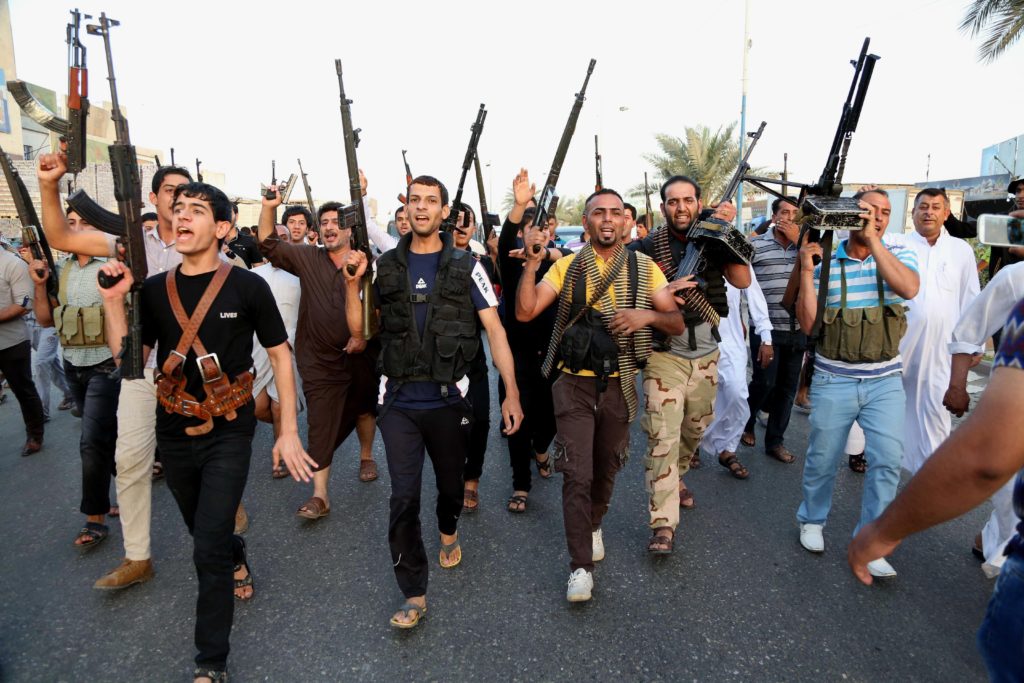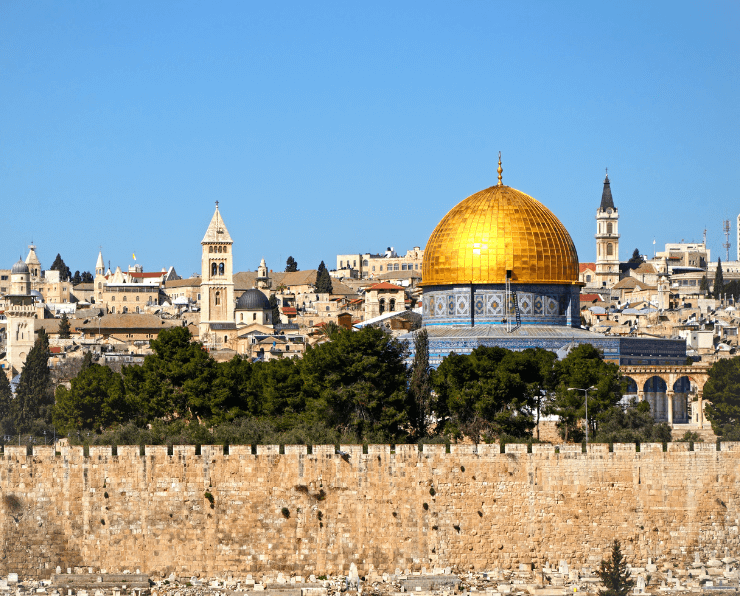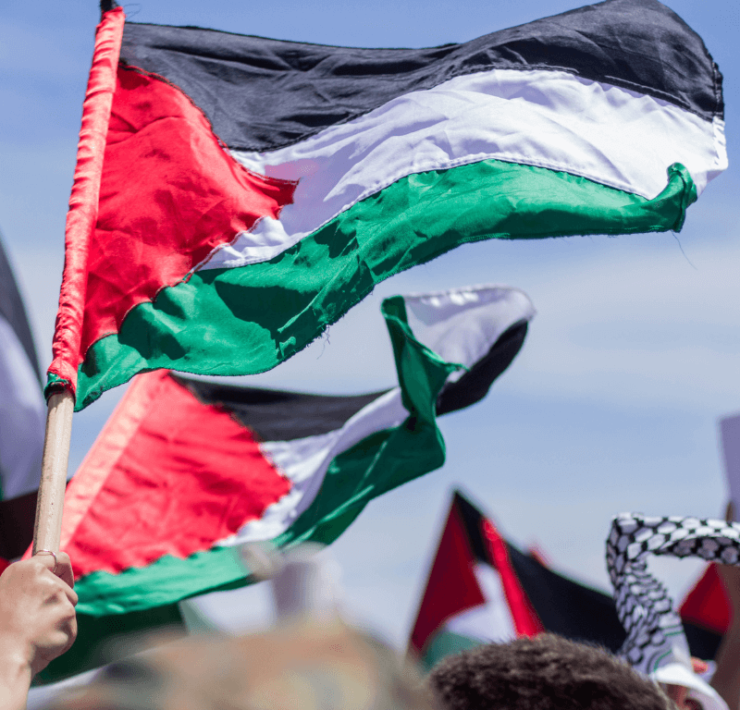2020 was a tumultuous year for the Middle East, and 2021 looks as if it will be no less eventful for the region, with possible diplomatic milestones on the cards and ambitious foreign policies raising eyebrows around the world. Here’s our list of five key issues we’ll be keeping our eyes on that will inevitably shape the political landscape of the Middle East in 2021:
An end in sight for the GCC-Qatar rift?
The 41st GCC Summit got underway on 5th January in the Saudi city of Al-Ula, where a dramatic announcement was made – Saudi Arabia was planning to remove airspace and border restrictions on its tiny, natural gas-rich neighbour, Qatar. Qatari Emir Sheikh Tamim bin Hamad al-Thani stepped off the plane in Al-Ula to be greeted symbolically with a hug by Saudi Crown Prince Mohammed bin Salman, and the GCC leaders went on to sign a ‘Solidarity and Stability agreement’ to end their three year diplomatic rift.
The rift began in 2017 when Saudi Arabia and its allies, the United Arab Emirates, Bahrain and Egypt severed diplomatic ties with Qatar in response to Qatar’s bold foreign policy, which often saw the tiny but wealthy state backing groups and regimes hostile to its Gulf neighbours including the Muslim Brotherhood, Turkey and Iran.
Qatar weathered the storm, refusing to give into a list of demands presented by Saudi Arabia and the UAE, which included closing its media station, Al Jazeera, a vocal critic of many regional governments. During the years since, both Kuwait and Oman have attempted to mediate between Qatar and its neighbours to bring an end to the rift.
Observers are now left wondering whether this new development will really mean an end to the spat, or whether it is more likely a move on the part of Saudi Arabia to win favour with the incoming Biden administration, which will likely take a less forgiving approach with regard to Saudi Arabia than its predecessors.
Reports indicate that the UAE has proven reluctant to compromise with Qatar, meanwhile Bahrain – which is under less US pressure than Saudi Arabia and the UAE – continues to clash with Qatar over maritime boundaries. So in spite of the displays of unity among GCC leaders at the Summit, we likely have not seen the last of the tense competition shaping regional geopolitics.
Read more:
- Explainer: What will happen at the 41st GCC summit? – Al Jazeera
- This GCC show of unity can’t hide its weakness – Madawi al-Rasheed, Middle East Eye
- Blood and Oil: Mohammed bin Salman’s Ruthless Quest for Global Power (Chapter 10) – Bradley Hope & Justin Sheck

After the Abraham Accords
Critiqued as the ‘peace deal that wasn’t’, 2020 saw a number of Middle Eastern countries including the UAE, Bahrain and Morocco normalise relations with Israel. The series of moves to normalise has been named the ‘Abraham Accords’ by the Trump administration and heralded as a huge breakthrough for peace between the Israelis and Palestinians. Critics, however, argue that there is no such thing as a peace deal between two countries that were never at war.
In reality, all the process of normalisation does is officially formalise relations that have been ongoing for years, particularly in the security and technology sectors. Palestinians, meanwhile, are set to lose out from normalisation, which has emboldened the government of Israeli Prime Minister Netanyahu without bringing Palestinians any closer to autonomy or a state.
The latest country to normalise was Morocco, which seemingly did so under pressure from the US, in exchange for the Trump administration recognising its sovereignty over neighbouring Western Sahara.
The pressure remains on Saudi Arabia, which, if it were to normalise, would be the ultimate prize for Trump’s son-in-law Jared Kushner, who is behind the efforts. It would, however, be a huge blow to the Palestinians. In 2021 we will see whether Saudi Arabia will follow suit. Perhaps resuming ties with Qatar will be enough to placate the US for now, and the Biden administration may not prioritise normalisation as the Trump administration did. It will also be interesting to watch which other countries, if any, follow suit this year, and what this means in reality for prospects for a solution for Israel and Palestine.
Read more:
The real peacemaker this week was Qaar, not the UAE: Here’s why – Marc Owen Jones, Haaretz
Iran and the Palestinians lose out in the Abraham Accords – Jeffrey Goldberg, the Atlantic
Fraternal Enemies: Israel and the Gulf Monarchies – Clive Jones and Yoel Guzansky
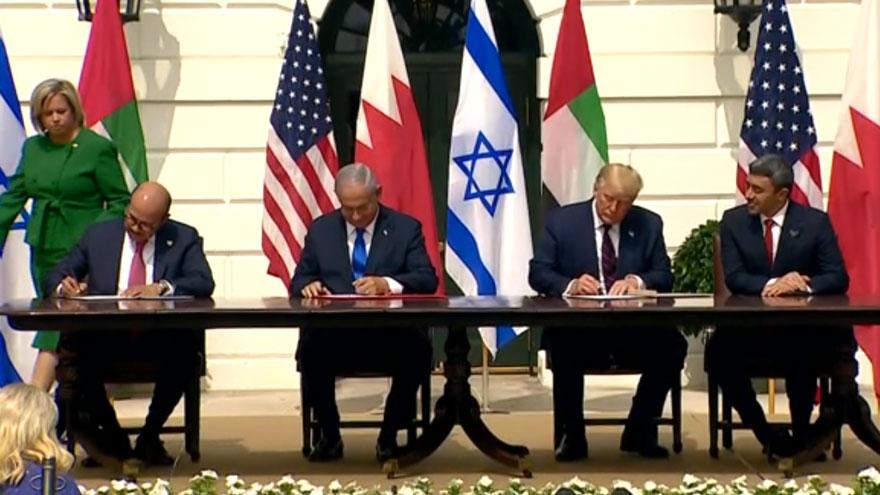
Recep Tayyip Erdogan ‘Making Turkey Great Again’
Turkey’s bold and adventurist foreign policy has raised its profile internationally in recent years, while also helping President Recep Tayyip Erdogan to consolidate power at home. After seemingly shifting from its long-term bid to join the EU over the last five or so years, Turkey has been looking east to forge new alliances and has been intervening in conflicts outside its borders, for example in Syria, Libya, Greece and Nagorno-Karabach.
This apparent shift has led some to suggest Erdogan is trying to ‘Make Turkey Great Again’, creating some friction with European countries and the US. But while many in the west label his efforts neo-Ottoman, others insist Turkish foreign policy is merely defensive and pragmatic. Either way, as Turkey faces economic challenges at home, not to mention the fallout of Covid-19, it is unclear how long Erdogan will be able to sustain this approach.
Furthermore, Turkish relations with Qatar had been bolstered significantly by the GCC rift – a strategic win for Turkey, whose relations with the other Sunni Gulf monarchies are strained. With the apparent mending of the rift between the GCC and Qatar, it is unclear where exactly this leaves Ankara. With high stakes and much uncertainty going forward, Turkey will definitely be one to watch in 2021 as far as geopolitics in the Middle East are concerned.
Read more:
Why is Turkey suddenly fighting with everyone? – Joshua Keating, Slate
Turkey’s year of living dangerously – Allison Meakem, Foreign Policy
Turkey’s foreign policy and the myth of Neo-Ottomanism – Marwan Kabalan, Al Jazeera

Proxy competition in Yemen
Foreign intervention and proxy conflict have come to define the civil war raging in Yemen since 2015. Yet the last three years have seen proxy competition emerge not only between Saudi Arabia and Iran via the Hadi Government and the Houthis, but also between regional allies seeking to retain their influence in lesser known parts of Yemen, away from the frontlines.
In Yemen’s easternmost province of Al-Mahra, Saudi Arabia and Oman – both of which border Yemen – have provided patronage for different and at times competing tribal groups, hoping to retain and grow their influence in a strategically important part of the country. This has threatened to destabilise the delicate tribal balance that has kept the region relatively peaceful throughout Yemen’s recent history.
Meanwhile on the island of Socotra – which is famous for its other-worldly plant and animal species and has remained relatively sheltered from the war – the UAE has established a presence by backing local actors and building military bases. In 2020, the UAE-backed Southern Transitional Council, which is fighting for southern independence in Yemen, took over Socotra in what was labelled as a coup.
Many see Emirati influence as part of a wider strategy for influence and economic dominance in the Red Sea and Horn of Africa region. These proxy competitions and attempts by regional powers to expand their influence in strategic parts of Yemen will inevitably continue in 2021 as the civil war becomes increasingly intractable, and observers of the region should keep a close eye on developments.
Read more:
Inside east Yemen: the Gulf’s new proxy war no one is talking about – Bel Trew, The Independent
Al-Mahra: History, culture and proxy conflict in eastern Yemen – Pink Jinn
Protracted conflict on Yemen’s island of Socotra reflects rival geopolitical ambitions – Fatima Abo Alasrar, Middle East Institute
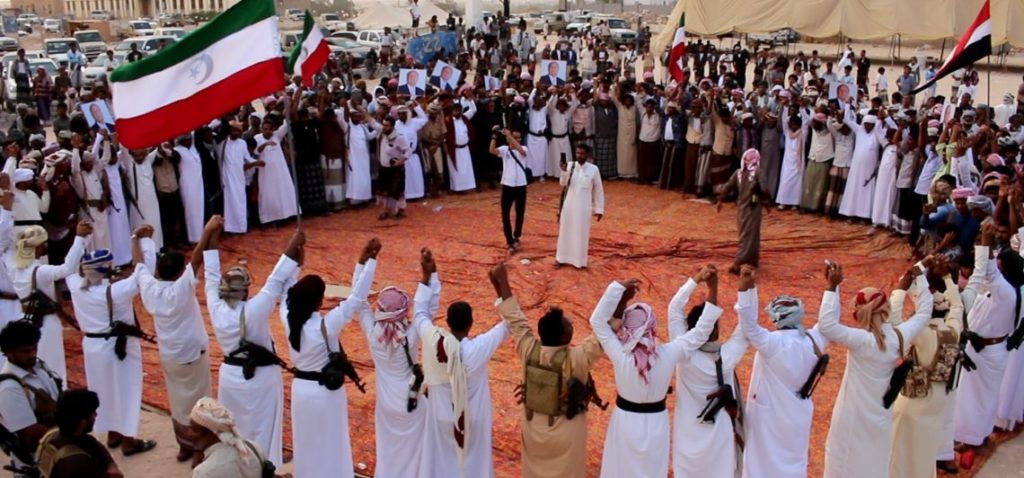
Iraq’s militias continue to cement their power
In the early days of the war against the so-called Islamic State in Iraq (Daesh), Iraq’s foremost Shia cleric, Ayatollah Sistani, called upon volunteers to take up arms and join the security forces to defend their country. That call was heeded by thousands of young Iraqis, many of whom flocked to join non-governmental militias – many of whom were and continue to be sponsored by foreign powers including Iran – to fight the terrorists.
While the militias undoubtedly played an instrumental role in Iraq’s defeat over Daesh, their victory also served to empower them, both militarily and politically. Since the end of the war, some of the more powerful militias have sought to increase their dominance over the Iraqi state and economy – thereby also increasing the influence of their foreign patrons.
Corruption, inter-militia conflict and the emergence of politically powerful warlords are seen by most Iraq watchers as being among the most complex problems the country faces as it seeks to rebuild post-war and navigate complex economic challenges, which have been compounded by the impact of Covid-19. The role of the militias in politics is also causing problems for the Iraqi government’s relationships with some of its closest neighbours and allies – including the United States.
The Iraqi people took to the streets in late 2019 and again in 2020, demanding an end to the influence of warlords and foreign powers over its politics and society. The current Iraqi government of Mustafa al-Khadimi has taken steps to rein in the militias, but the risks of a harsh crackdown are high. The government’s power is limited, and an attempt to crack down on militias could lead to incidents of violence and political deadlock, and in the worst case civil war. The situation remains volatile and complex, and it will inevitably develop over the course of 2021 with potentially profound implications for the geopolitics of the Middle East.
Read more:
Inside the Iraqi Kleptocracy – Robert F. Worth, The New York Times
For a stable Iraq, militias must be disarmed – Gulf News
Iraqi militias defy government, expand networks and pressure – Ali Mamouri, Al-Monitor
